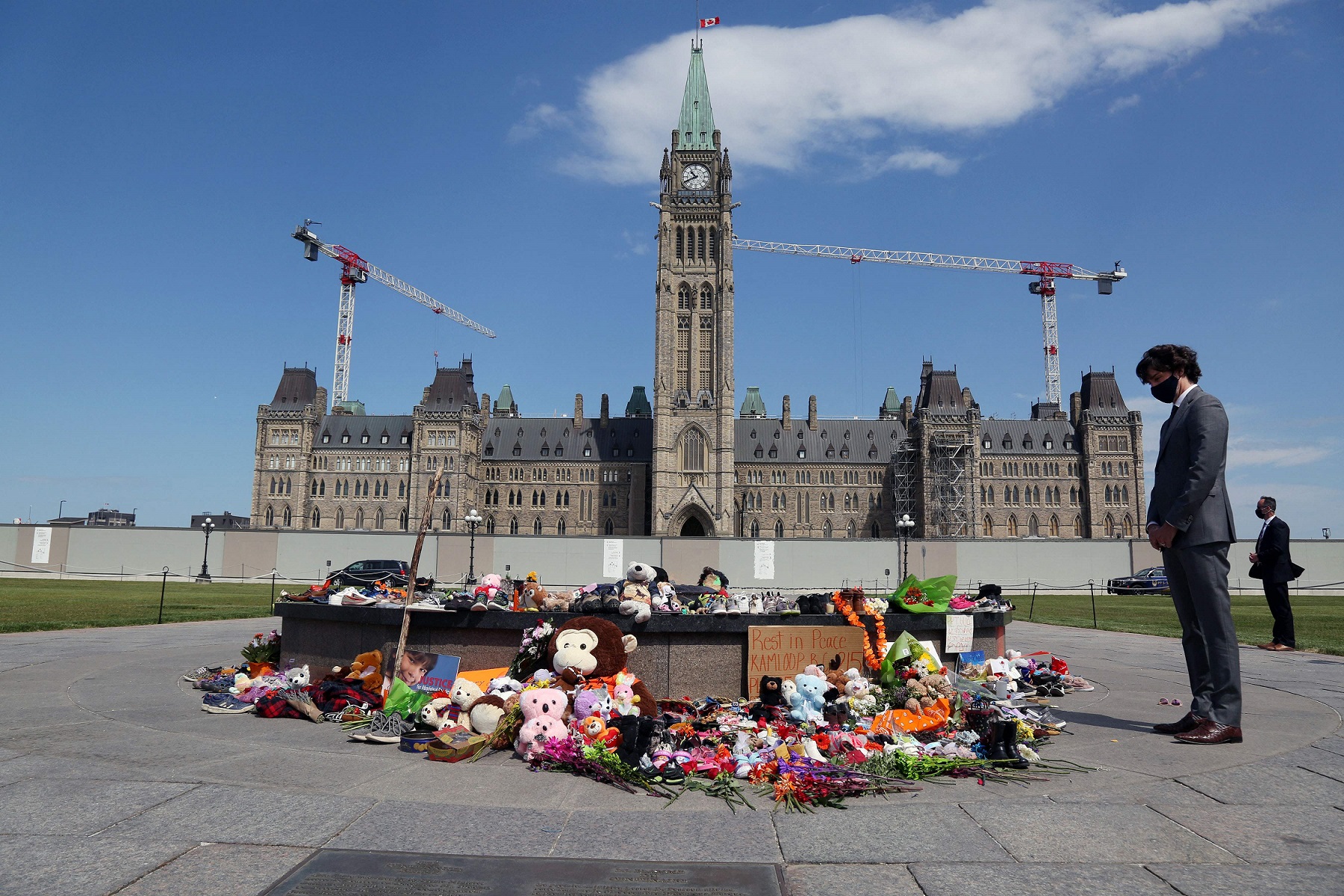July 1st marked the 154th anniversary of Canada’s founding as a nation.
It was a bittersweet moment for Canadians, as they were forced to come to terms with a tragic past whose impact continues to affect Canada’s national psyche.
As many of you have learned from media reports, thousands of unidentified bodies have been found buried on properties belonging to Residential Schools – schools that operated across Canada for over 100 years whose objective was to “convert Indigenous youth and to assimilate them into Canadian society” or as some would say, to “take the Indian out of the children”. The result was a rather cruel system whereby indigenous children were removed from their families at a very young age and sent to boarding schools where they were forced to adopt the ways of the white man and even punished for speaking their own language.
This mistreatment resulted in thousands of deaths over the years, and with families being separated and destroyed forever. The 1995 Truth and Reconciliation Report labelled this “cultural genocide” but it was only when the first bodies were discovered earlier this year that mainstream Canada was forced to confront it history of systemic racism.
While the schools were government sponsored, they were run by religious authorities with 65% of the schools run by the Catholic Church. By many accounts, many students suffered physical and mental abuse at the hands of impatient and dogmatic religious authorities whose cruelty paradoxically had little to do with the teachings of their Lord.
Indeed, these schools were seemingly the opposite of centers of Christian learning. By many accounts they were hell on earth for those children who passed through their doors and suffered irreparable damage and, in many cases, anonymous death for over a century.
To date, while the Canadian government has apologized for its role in this tragedy, the Catholic Church has not yet done so. While individual church leaders have expressed their indignation and sadness for this sad situation, the Church as an institution has refused to apologize to indigenous Canadians for its role in this affair.
Some argue that the Catholic Church refuses to pay and indemnity to the victims and their families as other churches have. Others claim that the theological basis for the Church’s existence – that it, as an institution is perfect and can do no wrong, but that only individuals can be guilty of wrongdoing – is at the base of this lack of apology.
This may be changing.
In 2017 Prime Minister Justin Trudeau asked the Pope to apologize to Canada’s indigenous peoples. Just this past week, almost 4 years later, I have seen reports that the Pope will receive a group of Canadian indigenous leaders in Rome in December and that a formal apology could be forthcoming after their encounter.
The pressure from Catholic Canadians in particular and Canadians in general has stung the Church. Many feel that there is no excuse for procrastination on such a sensitive and tragic issue in the XXIst Century. The Church has so far missed an opportunity to engage in community building and live its own teachings.
In Catholic doctrine, repentance is essential for entry into the Kingdom of God.
The Church’s refusal to repent is a negation of this basic doctrine. Many wonder if Canadians can forgive the Church if does not repent and make good on reparations.
So where do Canadians go from here?
Firstly, Canadians generally acknowledge the systemic racism undertaken in their name by successive governments at all levels. This gives governments the support necessary to act in order to ensure that a viable infrastructure is created for indigenous communities to provide clean water, health and education services as well support to allow them to nurture their languages and cultures.
Secondly, Canadian educators and broadcasters should consider ways to increase exposure to indigenous history, culture and the realities they face today in order to strengthen understanding and empathy for the “First Canadians.
Thirdly, the Pope would be wise to accept the Church’s responsibility in this tragic affair and to visit Canadian indigenous communities as soon as possible.
Finally, yesterday Prime Minister Justin Trudeau announced the appointment of Inuk diplomat Mary Simon as Canada’s new Governor General (Queen Elizabeth II’s representative in Canada and the nation’s de facto Head of State). This marks the first time that an indigenous person is appointed to this post and marks a watershed in Canada’s history and in the relationship between indigenous and non-indigenous Canadians.
Her first major challenge will be to learn to speak French so that she can communicate with Canadians in both official languages, something that she has pledged to do. Her second major challenge will be to bring Canadians together to move on from the current crisis that is discussed above.
So, perhaps by next Canada Day, its citizens can begin to replace pain, sadness and reflection with progress towards a better future for all.
Edición: Laura Espejo
Cecilia Patrón impulsa la rehabilitación de espacios públicos en colonias del sur y oriente para fortalecer la convivencia y calidad de vida
La Jornada Maya
Seguiremos siendo uno de los destinos predilectos para este sector, señala el secretario de Turismo estatal
Ana Ramírez
Durante diciembre alcanzó un nivel de ocupación cercano a 90 por ciento
Miguel Améndola
La oferta febrero-junio incluye modalidad presencial y virtual, con cupo limitado
La Jornada Maya
